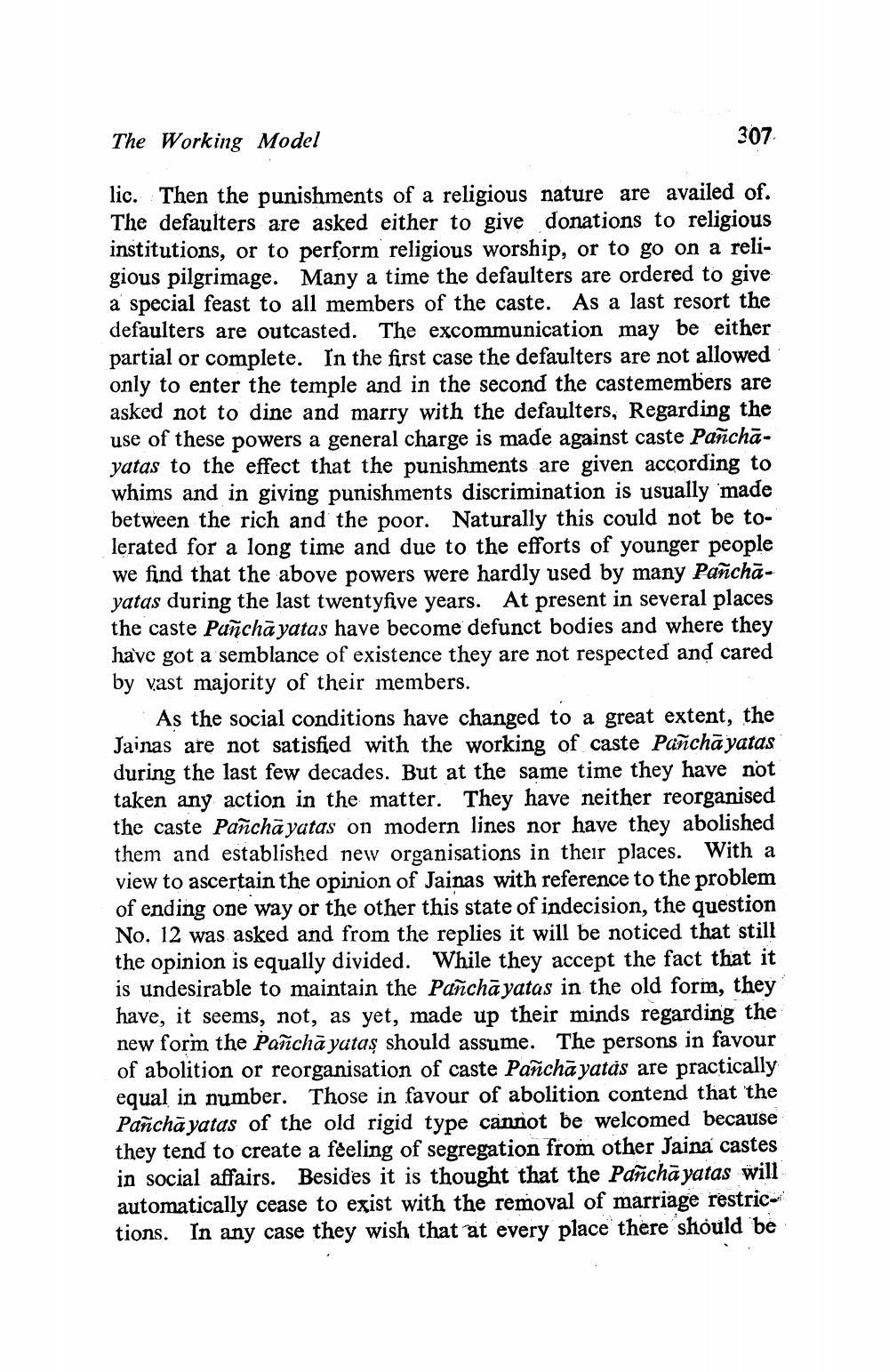________________
The Working Model
307
lic. Then the punishments of a religious nature are availed of. The defaulters are asked either to give donations to religious institutions, or to perform religious worship, or to go on a religious pilgrimage. Many a time the defaulters are ordered to give a special feast to all members of the caste. As a last resort the defaulters are outcasted. The excommunication may be either partial or complete. In the first case the defaulters are not allowed only to enter the temple and in the second the castemembers are asked not to dine and marry with the defaulters, Regarding the use of these powers a general charge is made against caste Pañchā. yatas to the effect that the punishments are given according to whims and in giving punishments discrimination is usually made between the rich and the poor. Naturally this could not be tolerated for a long time and due to the efforts of younger peop we find that the above powers were hardly used by many Pañchayatas during the last twentyfive years. At present in several places the caste Pañchāyatas have become defunct bodies and where they have got a semblance of existence they are not respected and cared by vast majority of their members.
As the social conditions have changed to a great extent, the Jainas are not satisfied with the working of caste Pañchāyatas during the last few decades. But at the same time they have not taken any action in the matter. They have neither reorganised the caste Pañchāyatas on modern lines nor have they abolished them and established new organisations in their places. With a view to ascertain the opinion of Jainas with reference to the problem of ending one way or the other this state of indecision, the question No. 12 was asked and from the replies it will be noticed that still the opinion is equally divided. While they accept the fact that it is undesirable to maintain the Pañchāyatas in the old form, they have, it seems, not, as yet, made up their minds regarding the new form the Pañchāyataş should assume. The persons in favour of abolition or reorganisation of caste Pañchāyatás are practically equal in number. Those in favour of abolition contend that the Pañchāyatas of the old rigid type cannot be welcomed because they tend to create a feeling of segregation from other Jaina castes in social affairs. Besides it is thought that the Panchāyatas will automatically cease to exist with the removal of marriage restrictions. In any case they wish that at every place there should be




